
Colonel ‘Ned Stark’ claims in a recent Air Force Times opinion piece that the “Air Force is not designed to produce good leaders.” I’m not sure ‘Col. Stark’ titled the article, but the gist of his (her?) argument, that command screening and evaluation is “seriously lacking,” makes a guest appearance in the first paragraph. This same paragraph defeats its own boldly stated but completely unsupported argument with a claim in the last sentence that there is “no accountability and no consequences.”
Awkwardly, the introduction opens with a link to the story about a wing commander recently removed for creating a “toxic environment,” which seems a consequence to me.
Perhaps Ned’s point is this commander should have never made it into leadership in the first place, an admirable but tremendously naive goal. History is full of failed leaders, and it is unlikely the AF will ever achieve 100 percent promotion and position efficacy. The fact that the AF is willing to remove those identified as toxic leaders negates Ned’s argument.
Oddly, the article then wanders into a false equivalence between the Guard and active duty leadership. He seems to imply if leaders were in place longer (as they are in the Guard), they would think more about their Airmen. He then compares retention rates between the Guard and active duty.
To compare the issues and equities between the Guard and active duty would take a separate article, but suffice it to say, unit manning, basing, deployment, etc., is different enough between the two that this comparison doesn’t hold up. To be sure, there are many leadership lessons the active duty could, and should, learn from the Guard (and vice versa), but fundamental retention issues between the two are very different.
Next comes another unsupported complaint about professional military education and fellowships, which I find hard to follow. It seems the author thinks there needs to be more PME, and Fellows Program selectees aren’t reading enough.
Ned continues with a rousing but poorly supported call for increased Emotional Intelligence among leaders. Ned seems to think AF leaders are strong in linguistic or logical-mathematical intelligence, but not so in intrapersonal intelligence (reference Dr. Gardner’s theory of multiple intelligences). A quote from General Colin Powell somehow supports his argument that AF leaders lack EI, but the connection is difficult to ascertain.
Ned seems to argue an AF leader can be “clever and diligent,” or a “real leader,” not both. The former should be consigned to staff, while the latter should be in command, he suggests. Last I checked, the staff needs good leadership also, even if they are not on command orders.
While these are just the shortcomings of a poorly constructed and disjointed argument, the biggest problem lies in what is not in the article.
Learning to lead Airmen happens not in PME, not in officer training and selection programs, not in improved command selection procedures, not in reading more books or taking personality inventories. To be sure, those things are an essential but small part of leadership development. The AF uses all these tools and continually adjusts them to achieve the best results they can. I’m confident AF leaders would be the first to admit they will never get it entirely right, but they spend considerable amounts of time, money, and effort trying.
No, real leadership, the foundation for a successful command, is developed and evaluated far from the classroom. It is found in the dead of night on the flightline, in the debriefing room at the end of a twelve-hour flight debrief, in the confined spaces and sewers of a base where the Civil Engineering Airman spends his holiday repairing critical infrastructure, or when the Communications Squadron Airman shares close company with rats while she fixes an underground wiring harness.
It’s found in the hospital with the commander at the bedside of her dying Airman, holding a grieving mother in her arms. It’s on the remote frozen northern plains where a Security Forces Airman guards his assigned posting in the dead of winter while everyone else is inside. These are just a small sample of the things I shared with my Airmen during my long AF leadership laboratory. It is in the character and efforts of countless Airmen all around the globe serving an air force on which “the sun never sets.”
This is the real leadership crucible; it is where leaders are to strive, to care, to fail, to get back up and fail again; over and over as they move the service incrementally forward every day. These are the leaders the AF strives to develop and promote.
Does the service do it perfectly? Of course not, but I’m convinced they are and will continue to do the best they can. Inevitably, toxic leaders will rise, no system is perfect. Dissenters like ‘Col. Stark’ introspectively dissecting and writing about these issues is one reason the AF can stay effective and move forward.
So, ‘Col. Stark,’ come out from behind the pseudonym and become a part of the solution, not just another complaining voice in an anonymous chorus.
You seem to care about the AF, and you have some excellent ideas; develop them a bit more and proudly bring them forward. Admittedly, it is risky to dissent publicity, but airmen have taken on that “dogfight” all the way back to Billy Mitchell. These are the “real leaders” the AF needs, come join them.
Soon you will see, the U.S. Air Force is indeed designed to produce good leaders, but it happens not in the classroom or conference room but in the heartbeat and rhythm of everyday AF operations all around the world.
Col (RET) David Murphy, USAF
Ph.D. Candidate, Leadership Philosophy
Dallas Baptist University
Colonel David Murphy retired in November 2014 after 25 years of U.S. Air Force service and is currently working on a PhD from Dallas Baptist University. Colonel Murphy served in a variety of operational, support, and training assignments culminating as the 782nd Training Group Commander at Sheppard Air Force Base. A graduate of the U.S. Army War College Class of 2012, Colonel Murphy has 12 years of experience in the Pacific Air Forces including four years in Korea.
Follow him on LinkedIn.
All views and opinions expressed in this article are those of the author, and do not necessarily reflect the opinions or positions of The Defense Post.
The Defense Post aims to publish a wide range of high-quality opinion and analysis from a diverse array of people – do you want to send us yours? Click here to submit an Op-Ed.


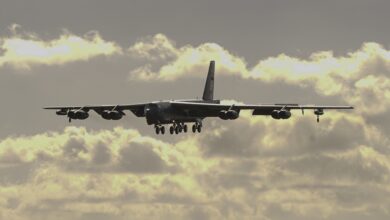

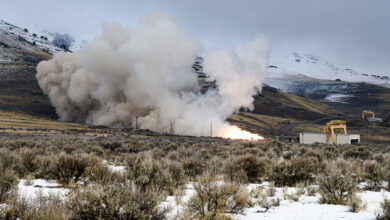
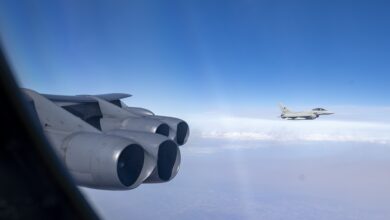



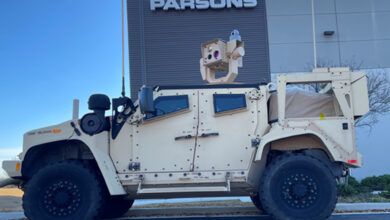
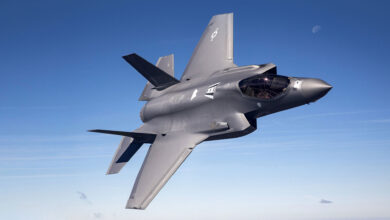

Col Murphy (ret),
This is not an optimist v pessimist discussion. I would like to agree with you’re line of thinking – that leaders, with good intentions, designed an officer development system to create leaders in the field vs the classroom and everything works out for the best in the end. However, take a look at the criteria to get into that classrom, how earning DG or not impacts a career, that an officer has to have a sponsor “protect them” and set up a series of assignments that look great on paper…, and then tell me the system is working as it was designed to produce the best leaders possible.
The problem, I think, is that senior leaders cannot see anything wrong with the system that delivered them into leader roles. It’s too difficult to acknowledge your own short comings and weaknesses as a senior leader because all along making mistakes was a career ender. Dealing with and learning from mistakes, and allowing others to do so as well is not is not a priority.
There’s no need to parse and dissect the OPs article as if you’re an expert on supporting arguments and as if this was a detailed thesis. – What you complain about is a sign that you cannot meet the author where he is and discuss on equal footing. – A dodge that only the ranking privileged have as an option – everyone else has to endure the consequences of leaders ignoring perspectives that don’t conform with the leaders’.
‘Col Stark’s’ comments may not be what you want to hear but, thank you for your service, it is what many in the service want to say and hold a discussion about with leaders in the AF today. Whether weak leadership is real or perceived makes no difference – the response “trust me we’re ok with the leaders and leader development model” is not going to make this fundamental concern to the AF go away. The AF does not have great leaders if it doesn’t have followers who believe in them.